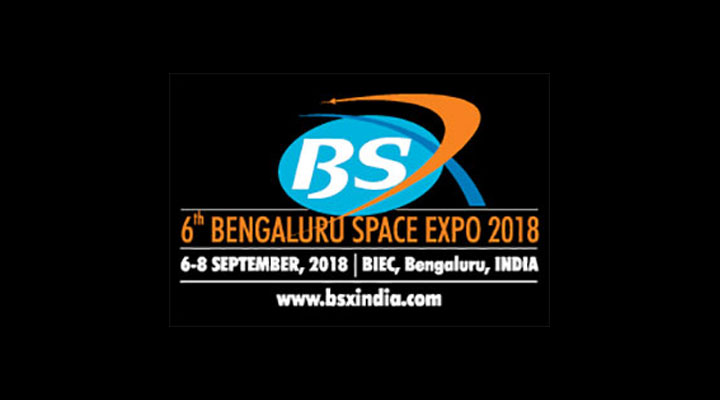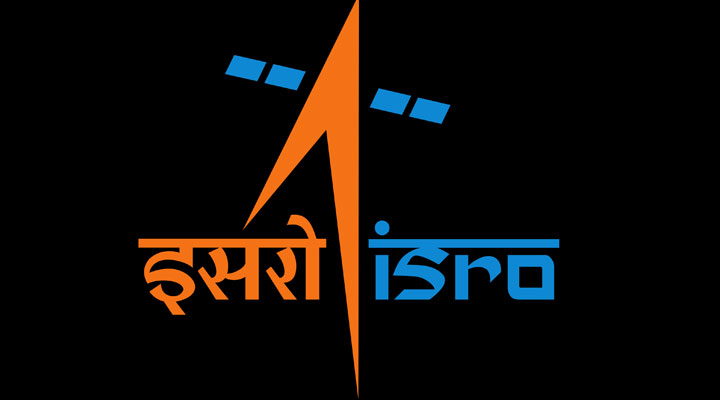Creating dynamism in the Indian space ecosystem is the leitmotif of the sixth edition of the Space Expo (BSX-2018). This event is prearranged for 3 days from September 6, 2018, to September 8, 2018, at Bangalore; and the expo is open to all on September 8, 2018.
This edition has a precise focus on endowing new space thespians in our country. BSX-2018 delivered a solitary display place for the interface of hundreds of delegates with specialists, entrepreneurs, and leading light of space industry. This event is organized by Confederation of Indian Industries (CII) in collaboration with Indian Space Research Organisation (ISRO) and Antrix Corporation Limited. More than 700 delegates are participating in this Asia’s largest event on Space, Satellites and Launch Vehicles.
 Many eminent speakers including, Dr. K Sivan, Chairman, ISRO and Secretary, Department of Space addressed the emissaries on September 6, 2018. While addressing the meeting he said that the academia and industry were the two strong pillars of ISRO. Nearly 80 percent of the launch vehicles and 50 percent of satellite work was being done by the industry. Also, he said that the demand for small satellites has been growing exponentially and called upon the industry to capture the growing market.
Many eminent speakers including, Dr. K Sivan, Chairman, ISRO and Secretary, Department of Space addressed the emissaries on September 6, 2018. While addressing the meeting he said that the academia and industry were the two strong pillars of ISRO. Nearly 80 percent of the launch vehicles and 50 percent of satellite work was being done by the industry. Also, he said that the demand for small satellites has been growing exponentially and called upon the industry to capture the growing market.
In this Space Expo BSX-2018, many technical sessions are scheduled covering prospects and boulevards for industries in launch vehicles, satellites, and satellite-based applications.
In this technology-driven world, almost the functionality of everything varying from satellite television to the Internet chastely depends on the satellite applications. In this setting, if someone talks about the satellite and its importance, repeatedly the only question that wavers in my mind is how many of us really know the origin of satellites. Of course, I believe, everyone knows more or less about satellites – or at least might have heard the name of a Satellite. But, I wonder how many of us know about Arthur C Clarke. With the successful missions like NASA’s MAVEN and ISRO’s MOM, the entire world has been talking about the satellites and allied issues. However, before 1945, nothing a sort of satellites existed.

When we consider the communication through satellites, the first and foremost person to be harked back is — Sir Arthur Charles Clarke. Sir Arthur C. Clarke was one of the most important and influential figures in 20th-century science fiction. He spent the first half of his life in England, where he served in the Second World War as a radar operator, for being an air warrior of Royal Air Force. He is best acknowledged for the novel and movie 2001: A Space Odyssey. With the assistance of Stanley Kubrick, Arthur C Clarke co-created this iconic film.
In 1945, an article titled Extra-Terrestrial Relays: Can Rockets Give Worldwide Radio Coverage? concerning the notion of artificial satellites, was first published in the Wireless World Magazine. The author of this article, Arthur C Clarke, was an ordinary man who then was employed with the British Royal Air Force. The captioned article turns out to be the foundation of entire satellite technology.
Most of the people who read this article either might have thought it as a made-up article or fictitious one. Nevertheless, few visionaries took it seriously and started working on the concept. It was on October 4, 1957, that the erstwhile USSR had successfully launched the world’s first ever satellite. It was named Sputnik (actual name is Sputnik Zelmi).
Thereafter, the world never looked back and further so many advancements have taken place in the satellite systems, making the world almost wireless. The first true communication satellites — Telstar I and Telstar II were launched in July 1962 and May 1963.
I wonder, many times, what could have been the situation without the advent of satellites that led to many applications, without which the survival of the people of this generation draws a big question mark. Hats off to Arthur C Clarke!
-Dr. Suman Kumar Kasturi












